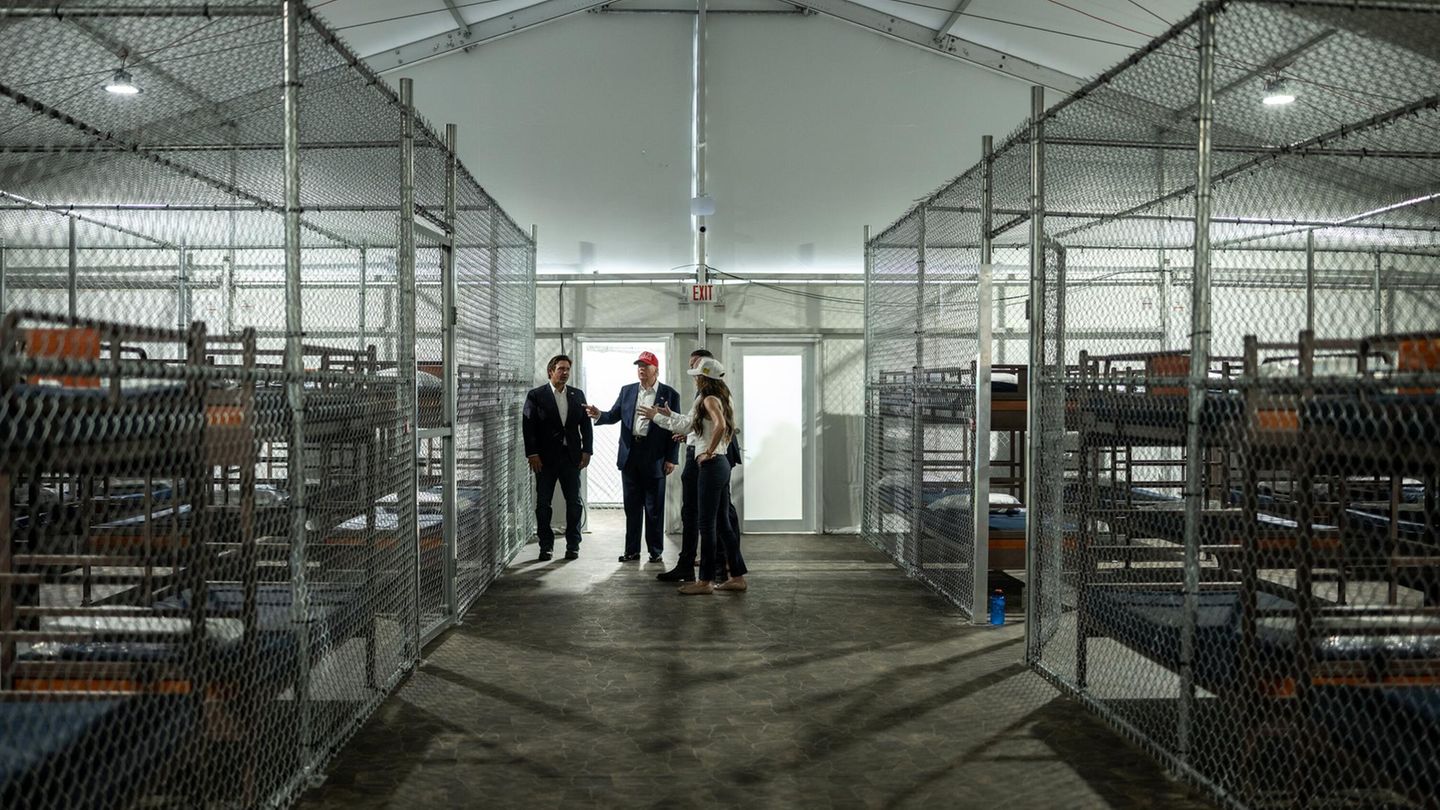Struggling battery company
Important court date: This is the status at Varta
Copy the current link
Varta was seen as a beacon of hope. Then the management took over – and plunged the company into crisis. The restructuring means a total loss for small investors. Now an important date is coming up.
The bad news has recently increased at the battery company Varta. Observers were able to see how the company slipped further and further into the crisis. There has been a plan since the summer to renovate Varta. That’s what a court hearing in Stuttgart will be about on Monday. An overview of the crisis at Varta – and what the future of the traditional company looks like:
Before the crisis, everything looked like a success story at the battery company based in Ellwangen, Swabia: in 2017, the Austrian Michael Tojner took the company public. Successfully. The development was driven primarily by the rapidly increasing demand for rechargeable lithium-ion batteries – for example for wireless headphones and smartwatches. In 2019, Varta bought back the household batteries division. Within a few years, revenue almost quadrupled. In order to expand production, millions were invested – and debts were taken out.
The crisis began in 2022: Varta had obviously become too dependent on one of its main customers – Apple. The US company had installed the batteries in its wireless earphones at the time. When Apple looked for another supplier, the business came under pressure. The then Varta boss Herbert Schein conceded the sales and profit targets – and resigned a short time later. In the period that followed, the global economic downturn and high inflation dealt a blow to consumer electronics and demand fell. There was also competition from the Far East and supply chain problems. A foray into the electric car battery business was also unsuccessful.
As a result, Varta slipped further and further into crisis. Employees had to go on short-time work, and hundreds of jobs were later cut. To make matters worse, a hacker attack in the spring brought production at the German locations to a standstill. Critics mainly blame management errors for the misery. Tojner was also self-critical: “We have set the bar too high. We have started various projects, invested heavily and expanded production.” In order to prevent bankruptcy, Varta filed for pre-insolvency restructuring proceedings in July.
In the summer, the group agreed on a restructuring concept with important creditors. The concept essentially envisages two steps: On the one hand, a haircut and the extension of loans are intended to reduce liabilities from almost half a billion euros to 230 million euros. In addition, the share capital of Varta AG is to be reduced to zero euros. The effect: The shareholders leave without compensation and the group loses its stock market listing.
Shares will then be issued again – but only to one of Tojner’s companies and the sports car manufacturer Porsche. Both of them cost 30 million euros each. 60 million come from the creditors as loans.
The restructuring is carried out in accordance with the Corporate Stabilization and Restructuring Act (StaRUG). This provides for a date on which the restructuring concept is presented and discussed with the affected group of creditors – this includes, for example, banks and shareholders. A vote will then be taken to approve the plan.
According to Varta boss Michael Ostermann, almost everyone affected is behind the concept. However, a clear rejection is likely to come from small investors. Because they are threatened with expropriation. In a StaRUG procedure, the interests of shareholders can be undermined. According to the Varta management, there is no alternative to the step, but shareholder advocates see it differently. It was only on Friday that the Small Investors Protection Association (SdK) filed a lawsuit on the matter with the Federal Constitutional Court. They argue that the exclusion of subscription rights without compensation when restructuring the company violates the ownership guarantee.
Varta boss Ostermann expects that, if accepted, the process can be completed at the end of December in the best case, but more likely at the end of January. The shares will then be de-booked and Varta will be taken off the stock exchange. In addition, company figures for the 2023 financial year and several quarters of 2024 will be published afterwards. However, it remains to be seen whether the campaign representatives will be successful in their resistance. This could delay the process.
And what happens next for the company? Varta wants to hold on to all German locations. There is also likely to be little change in the number of employees of around 4,000. However, according to Ostermann, there should be a shift: there are too many jobs in the administration and they are being cut. However, employees are being sought in production.
In the current year, Varta has already had to adjust its sales forecast downwards several times. The Swabians are currently expecting proceeds of 750 to 800 million euros. Ostermann was nevertheless cautiously optimistic about the future of the group. “Varta didn’t have an operational problem, but a debt problem,” he said. We have an excellent positioning in the consumer goods market and things are also going well in the hearing aid sector. Ostermann also expected growth again in the future in the energy storage business for photovoltaic systems.
dpa
Source: Stern




